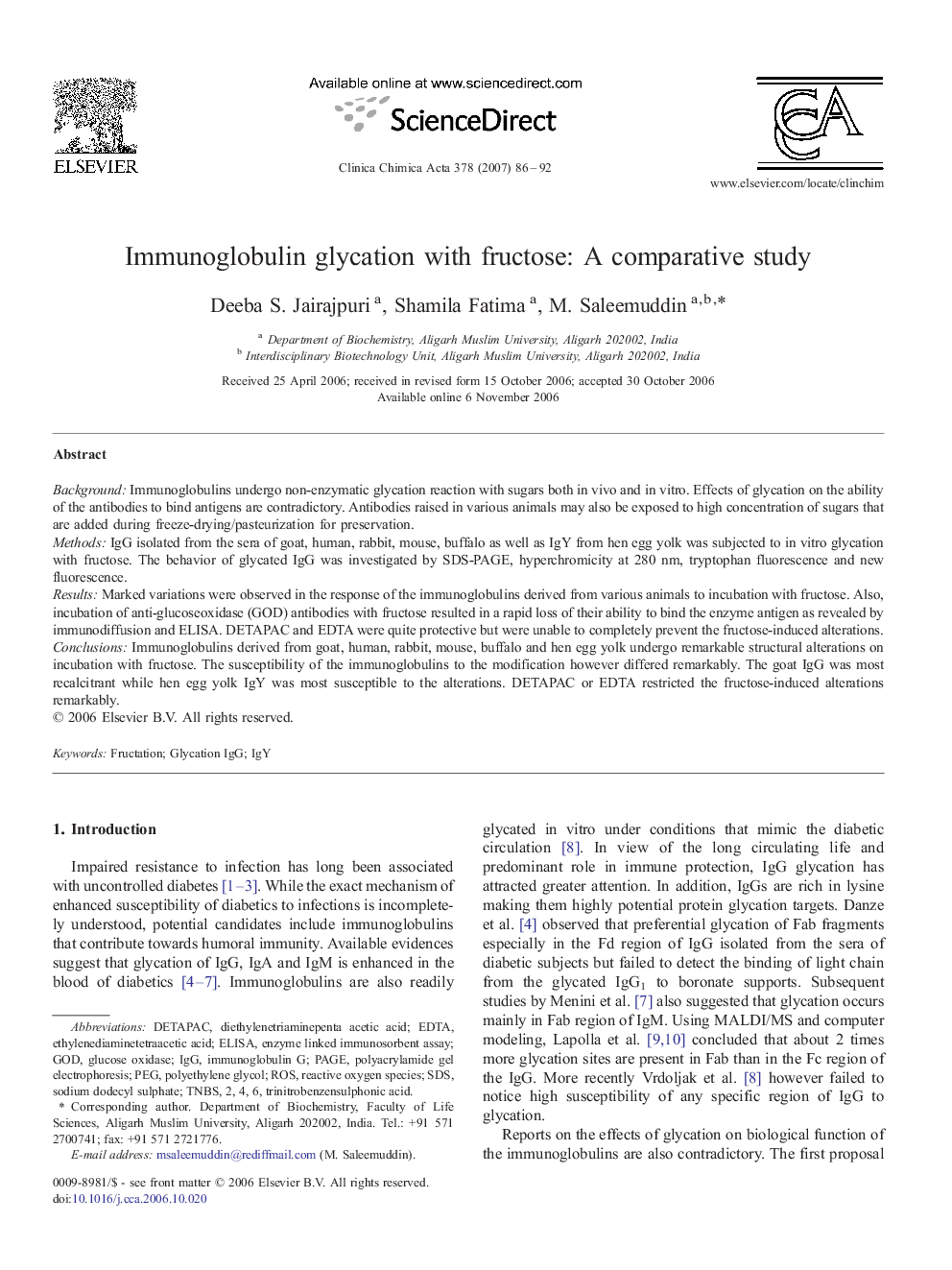| Article ID | Journal | Published Year | Pages | File Type |
|---|---|---|---|---|
| 1967644 | Clinica Chimica Acta | 2007 | 7 Pages |
BackgroundImmunoglobulins undergo non-enzymatic glycation reaction with sugars both in vivo and in vitro. Effects of glycation on the ability of the antibodies to bind antigens are contradictory. Antibodies raised in various animals may also be exposed to high concentration of sugars that are added during freeze-drying/pasteurization for preservation.MethodsIgG isolated from the sera of goat, human, rabbit, mouse, buffalo as well as IgY from hen egg yolk was subjected to in vitro glycation with fructose. The behavior of glycated IgG was investigated by SDS-PAGE, hyperchromicity at 280 nm, tryptophan fluorescence and new fluorescence.ResultsMarked variations were observed in the response of the immunoglobulins derived from various animals to incubation with fructose. Also, incubation of anti-glucoseoxidase (GOD) antibodies with fructose resulted in a rapid loss of their ability to bind the enzyme antigen as revealed by immunodiffusion and ELISA. DETAPAC and EDTA were quite protective but were unable to completely prevent the fructose-induced alterations.ConclusionsImmunoglobulins derived from goat, human, rabbit, mouse, buffalo and hen egg yolk undergo remarkable structural alterations on incubation with fructose. The susceptibility of the immunoglobulins to the modification however differed remarkably. The goat IgG was most recalcitrant while hen egg yolk IgY was most susceptible to the alterations. DETAPAC or EDTA restricted the fructose-induced alterations remarkably.
